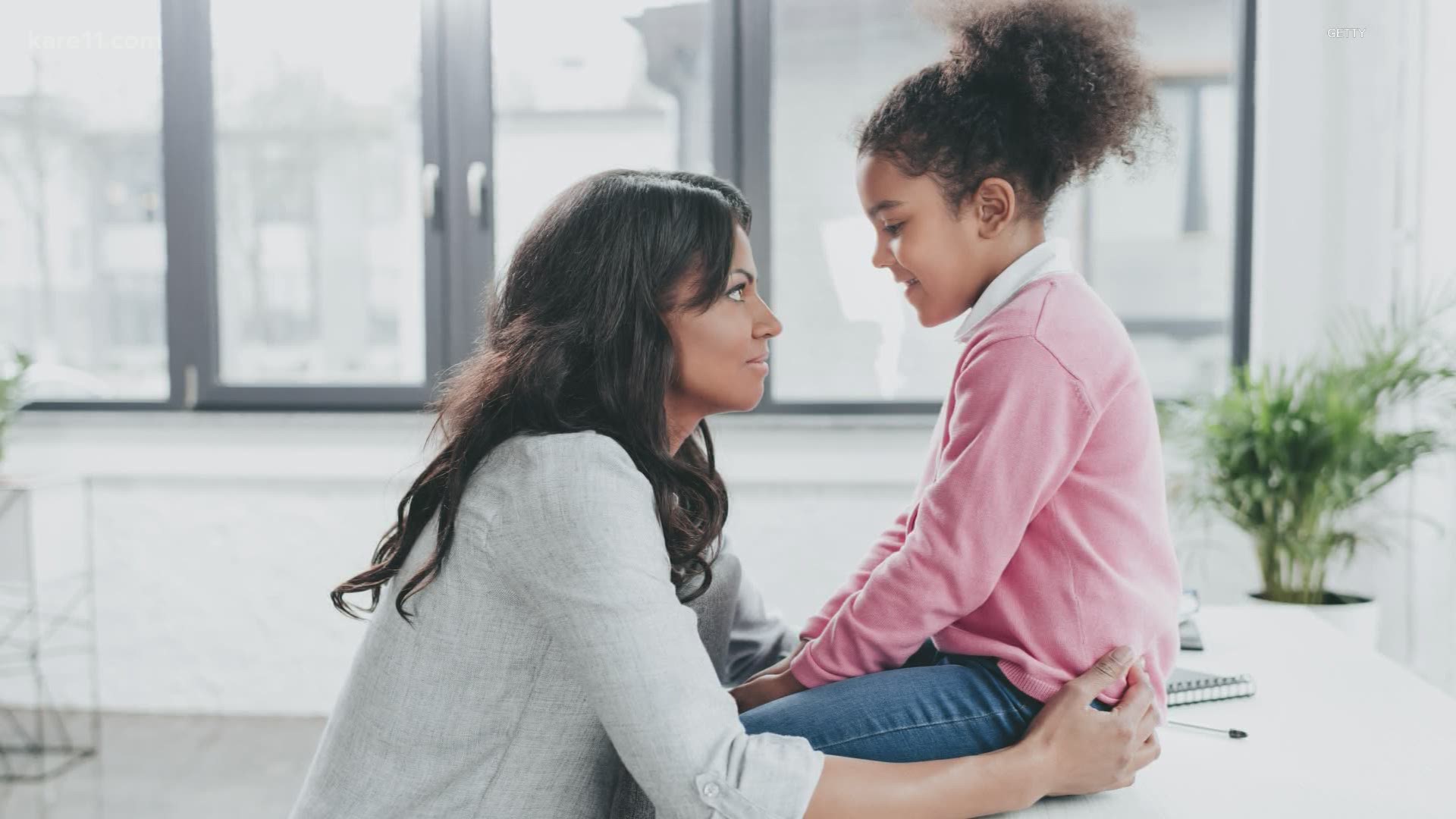MINNEAPOLIS — Are you wondering how to explain the upcoming school to your kids during this pandemic? Whatever your district’s scenario, your child might have questions and strong feelings.
Dr. Sarah Paper, a clinical psychologist at Allina Health, says before you even talk to your kids about the new school year, check your own emotional reaction.
"Kids are going to look to them to know how they feel about it, so if a parent is not calm, there’s no way their kid is going to believe that they should be calm or that it's going to be OK," Paper says.
Paper said when you're in those conversations, it’s important to validate however your child is feeling so they can pedal back to realize it’s OK.
For example, if they're upset they can’t see their friends because of remote learning?
"Listening to that and saying, 'That is so true, that is so true. It’s so hard not to see your friends. Oh my gosh, this is so hard on you. What can we do and still stay safe?'" Paper suggests.
She says that’s also a way to get them to participate in problem-solving.
"The more control and decisions they can have in it the better they’re going to feel during this," says Paper.
But what if they’re worried about in-person learning?
"I think parents can say again, validate that fear that it’s a really scary time, but that school’s important and that really smart experts are working on this and making sure that it’s safe. And that everybody wants children to be safe," Paper says.
Here are two don’ts from Paper:
- Don’t project your own feelings
- Don’t lecture kids about why they should feel a certain way
Paper says a sign something might not be OK with your child is oppositional behavior. She says that's often based in anxiety, or a kid is trying to protect themselves or avoid things that feel scary. She says if they're acting more irritable or oppositional, ask them what they're worried about.
"Even maybe saying to them, 'I know this is scary,' if they’re not able to admit to their fears," Paper says. "Name it for them and they can tell you you’re wrong, they will, and if you’re right they’ll feel really heard and understood," Paper says.
She says if you can, find a bit of fun in the whole situation.
"Help them pick out their own mask to wear to school. Come up with masks that match their outfits," Paper recommends. "Try to find the opportunities in that to have some fun."
Paper says don’t forget to pay attention to adolescents and teens. You might think they’re older and just get it, but she says they may have a sense of immortality, and you’re asking them to believe bad things will happen if they hang out with their friends. She says to also take their feelings into account.

